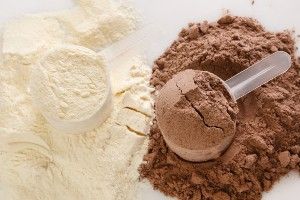Top Class Actions’s website and social media posts use affiliate links. If you make a purchase using such links, we may receive a commission, but it will not result in any additional charges to you. Please review our Affiliate Link Disclosure for more information.
A California consumer is suing Fuel for Fire over “deceptive labeling” of protein content in its smoothie pouches.
The company makes and markets ready-to-drink protein smoothies under the brand name Fuel for Fire. The front label of each pouch prominently states that it contains 7, 10, 11 or 12 grams of protein, depending on the flavor. The back label and “nutrition facts” panel also emphasize those numbers.
But in her class action lawsuit, plaintiff Sherris Minor claims the pouches contain about 25% less protein than advertised, based on amino acid testing.
According to the Fuel for Fire class action lawsuit, health-conscious American consumers are increasingly buying foods that purport to be high in protein for weight loss and general fitness. Studies show protein can help decrease weight, blood pressure, cholesterol and cardiovascular risk.
For that reason, Fuel for Fire markets primarily to athletes, dietitians and coaches, who typically consume 1 to 1.5 grams of protein daily for each pound of body weight, the lawsuit states. (By comparison, the National Academy of Medicine recommends a bit less for the average adult: about 0.7 grams per pound.)
The company also offers protein pouches for children, who “rely on protein as the building block of muscle, bone, skin, hair, and virtually every other body part or tissue.”
For her part, Minor says she was attracted to Fuel for Fire’s products because they provided quick and easy breakfast drinks that seemed to fit her high-protein diet as an active adult.
She reportedly paid a premium for the pouches, relying on the information printed on the product labels to determine their value. Minor is claiming that she and other putative Class Members have been economically damaged by these purchases because they did not receive what they reasonably expected for the prices paid.
In addition to overstating the protein content of its pouches, Minor claims the nutrition panel fails to provide the Daily Reference Values (DRV), commonly known as the percent daily value.
Under both federal and California state regulations, products that claim protein content must state “a percentage of the daily value of the protein in the product based on its amino acid content and digestibility score,” the lawsuit maintains. “Defendant’s products prominently make protein content claims but fail to provide the required percent daily value of protein, which further obfuscates defendant’s misrepresentations about the amount of protein in its products.”
The Fuel for Fire class action lawsuit notes that proteins are composed of different combinations of amino acids, with some varieties more beneficial and digestible to humans than others. There are nine “essential” amino acids, which the human body cannot produce on its own and must be obtained through diet.
Whey protein is animal-based and contains all nine of the essentials. Plant protein, on the other hand, rarely contains all nine, according to the filing. Fuel for Fire uses animal-based proteins in some of its pouches and plant-based in others.
Regarding the company’s plant-based proteins, the lawsuit states “defendant claims that its ‘proprietary blend of pea protein and brown rice protein constitutes a ‘complete protein,’ providing [consumers] with all 9 essential amino acids the body needs.”
Minor argues that Fuel for Fire deliberately misrepresents the contents of its smoothie pouches and omits key information to capitalize on consumers’ willingness to pay premium prices for them. She also maintains the company is perpetuating that practice with new additions to its product line.
“Since 2012, Defendant has expanded its product line from only whey-based protein pouches, to plant-based protein pouches, to pouches for kids and has continued to replicate its misrepresentations on the new product lines,” according to the Fuel for Fire class action lawsuit.
“Defendant continues to launch new product lines and flavors to diversify its portfolio to maintain its competitive edge, making it likely that Defendant will continue to misleadingly advertise its Products and perpetuate the misrepresentations regarding the number of grams of protein in its Products.”
She is claiming violations of California’s Consumers Legal Remedies Act in addition to false advertising; fraud, deceit and/or misrepresentation; unlawful, unfair and fraudulent trade practices; and unjust enrichment.
A court order stopping Fuel for Fire from continuing its allegedly illegal marketing practices is at the top of her list of demands. On behalf of all potential Class Members, she also is seeking compensatory, statutory and punitive damages, plus court fees.
The plaintiff is represented by Adam J. Gutride, Seth A. Safier, Marie A. McCrary and Hayley Reynolds of Gutride Safier LLP.
The Fuel for Fire Class Action Lawsuit is Sherris Minor, et al. v. Fuel for Fire Inc., Case No. 3:20-cv-02437, in the U.S. District Court for the Northern District of California.
Read More Lawsuit & Settlement News:
Betty Lou’s Class Action Disputes Protein Shake Label
Country Farms Farm Fresh Nutrition Class Action Says Supplements Are Mislabeled
New York Roman Catholic Church Sex Abuse Lawsuit Investigation
Uber Sexual Assault, Lyft Driver Rideshare App Lawsuit Investigation
ATTORNEY ADVERTISING
Top Class Actions is a Proud Member of the American Bar Association
LEGAL INFORMATION IS NOT LEGAL ADVICE
Top Class Actions Legal Statement
©2008 – 2024 Top Class Actions® LLC
Various Trademarks held by their respective owners
This website is not intended for viewing or usage by European Union citizens.

















20 thoughts onFuel for Fire Class Action Says Protein Content is Overstated
add me please
Add me
Add me
Please add me
add me
And me t
Add me please.
Please add me.
Please ad me
Add me